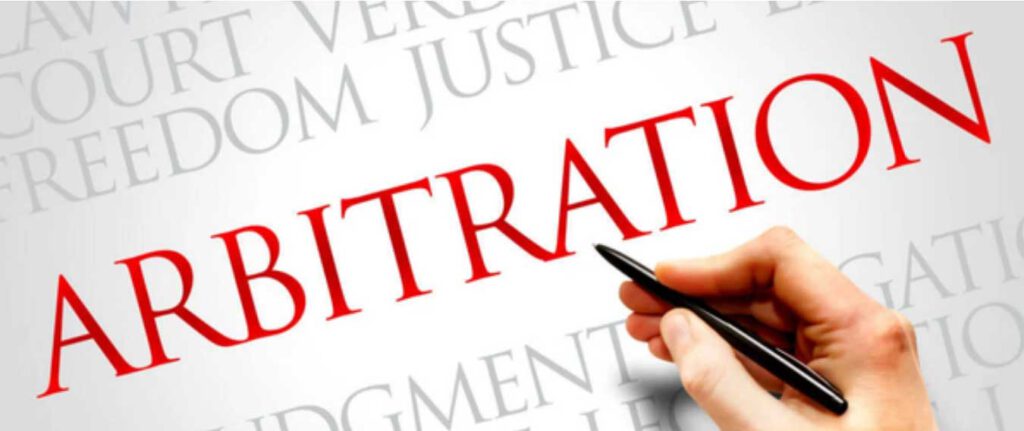INTRODUCTION
“Differences we shall always have but we must settle them all, whether religious or other, by arbitration”. – Mahatma Gandhi
With economic growth and to avoid prolonged litigation, the parties’ resort to arbitration as a preferred alternate dispute resolution mechanism. Not only in India but globally it has been realized that arbitration happens to be a favuorable path for all and if it gets tangled in the delayed courts proceedings it will loose it’s quintessence.
Recently the Hon’ble Supreme Court has delivered a verdict on issue of modification of arbitral awards under Section 34 of the Indian Arbitration and Conciliation Act, 1996 which has cleared the fog around the matter, provided valuable insights into the interpretation of section 34 of Arbitration and conciliation Act, 1996. It accentuated the importance of understanding the nature of arbitral proceedings and the role of the court in scrutinizing the award. The ruling is a reminder for all the stakeholders in the arbitration process to adhere to the principles laid down by the law. The Supreme Court delivered its verdict in the case of National Highways Authority of India vs. P. Nagaraju and Ors. (11.07.2022 – SC): 2022
The Hon’ble Court held that a petition under section -34 of the Arbitration Act doesn’t empower the court to decide the case on its merits & modify the Arbitral Award.
The court held that the learned Arbitrator has committed patent illegality in applying two different notifications in determining the market value, keeping in view the scope available Under Section 34 of Act, 1996 it would not be open for this Court to substitute its view to that of the learned Arbitrator and modify the award. If the Award passed by the learned Arbitrator suffers from patent illegality and appropriate consideration is necessary, the only course open is to set aside the award and allow the learned Arbitrator to reconsider the matter on that aspect.
Even when we look into some of the former cases of the Hon’ble Supreme Court. In the case of MC Dermott International Inc. V. Burn Standard co. Ltd, it was held that the court is not entitled to amend the errors of the Arbitrator in a petition under section-34
This article highlights the confusing and conflicting views taken by various High Courts and Supreme Court on the subject matter of section-34 of the Arbitration and Conciliation Act prior to the Judgment of Supreme Court in National Highways Authority of India vs. P. Nagaraju and Ors.
RELEVANT CASE LAWS
Previously, there was no settled position on the power of courts to modify the awards with different High Court benches giving different views. In 2006, the Hon’ble Supreme court, in Mc Dermott International Inc. V. Burn standard co. (2006) 11 SCC 181 It was observed that the 1996 Act makes provision for supervisory role of the Courts and for the review of the arbitral award only to ensure fairness. This supervisory role has to be kept at a minimum level and interference is envisaged only in cases of fraud or bias, violation of natural justice etc. it was held that interference on the ground of “patent illegality” is permissible if the same goes to the root of the matter and the Public Policy violation should be so unfair and unreasonable as to shock the conscience of the Court. This was followed by the Oil and Natural gas corporation Ltd. v. Western Geco International Ltd. wherein. The court stated that when the arbitration tribunal draws a wrong inference on facts, the award can be ‘cast away or modified’. Similarly in the case of Vedanta Ltd. v. Shenzhen Shandong Nuclear power Construction Co. Ltd, the court modified the award passed by the tribunal in International commercial arbitration. None of these decisions elaborated upon the source of the court’s power to modify the award.
MMTC Ltd. vs. Vedanta Ltd. (18.02.2019 ) SC/0221/
Hon’ble Court held that as far as Section 34 is concerned, the position is well-settled by now that the Court does not sit in appeal over the arbitral award and may interfere on merits on the finite ground provided Under Section 34(2)(b)(ii), i.e. if the award is against the public policy of India, a violation of Indian public policy, in turn, includes a violation of the fundamental policy of Indian law, a violation of the interest of India, conflict with justice or morality, and the existence of patent illegality. Furthermore, “patent illegality” itself has been held to mean contravention of the substantive law of India, contravention of the 1996 Act, and contravention of the terms of the contract.
On July 20, 2021 the case of National Highway Authority of India v. M. Hakeem& Anr. (“NHAI”), the court dictated that it does not have power under Section 34 of the (“Arbitration Act”) to modify the award passed by the arbitral tribunal.
Finally, in the case of Larsen Air Conditioning and Refrigeration company v. Union of India & Ors. 2023 the Supreme Court reiterated the same principle of minimum judicial intervention and only empowered the courts to either wholly or partly set aside an arbitral award.
Recently, even in the case of SV Sundaram v. State of Karnataka (2024)1SCR281 the supreme court once again rendered the principles ordained in Hakeem case that the courts under Section 34 of the 1996 Act cannot ‘cross the Laxman Rekha’ by altering an award.
CONCLUSION
Given the various contradictory judgments, the NHAI judgement cleared the situation surrounding the courts power to modify the award and foster the policy of minimum judicial intervention. The judgment notices the deliberate omission of remedy of modification by the legislature and gives effect to legislative intent. However, as done in the McDermott case, the courts can still modify the award under Article -142 of the Constitution to do complete justice. The power under Article 142 vests only with the Supreme Court and is exceedingly sparsely used.
Authored by
Varun S. Ahuja & Pragya Thakur
M/S Ahuja Law Offices
M:-9971673660

